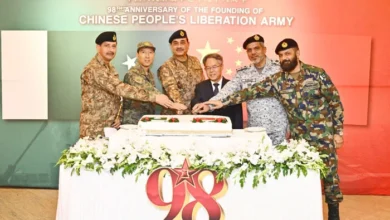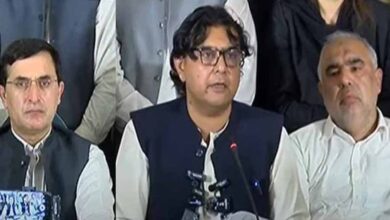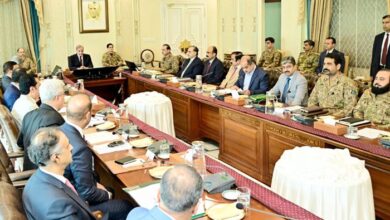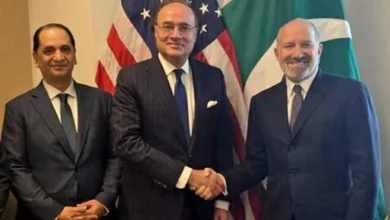Pakistan on Friday strongly rejected India’s claims related to its so-called Operation Mahadev and the recently debated Operation Sindoor, accusing New Delhi of inciting aggression and distorting facts for political purposes.
During his weekly media briefing, Foreign Office Spokesperson Shafqat Ali Khan denounced the recent statements made by Indian leaders in the Lok Sabha as “provocative and baseless,” saying they were an attempt to mislead the international community and justify aggression against Pakistan.
“India is targeting innocent civilians in the name of Operation Mahadev, and has failed to achieve any of its strategic goals through Operation Sindoor,” the spokesperson said. “Pakistan’s armed forces gave a befitting response to Indian aggression and remain fully capable of doing so again, if necessary.”
He said it was alarming that India launched its assault without waiting for an investigation into the Pahalgam attack despite the Pakistani prime minister’s offer for cooperation, adding that it proceeded to kill the alleged suspects even before parliamentary debate had concluded.
“It is shocking that the so-called accused were eliminated at the very start of the Indian Lok Sabha debate on the matter. This reflects India’s continued role as judge, jury, and executioner in such cases,” Khan stated.
Khan reaffirmed Pakistan’s desire for peace and dialogue, particularly with regard to resolving the longstanding Kashmir issue. “Pakistan wants a peaceful resolution of all disputes, including Jammu and Kashmir, through dialogue under international law,” he said.
The spokesperson also slammed India’s putting into abeyance the Indus Waters Treaty, calling it a violation of international obligations.
“Postponing or breaching the Indus Waters Treaty would be equivalent to disregarding a binding international agreement,” he warned. “We do not accept the statements of Indian leaders on the Indus Water Treaty.”
On the diplomatic front, the spokesperson gave an update on the official visit of Deputy Prime Minister Ishaq Dar to the United States.
Dar, who visited Washington from New York on July 25, met with US Secretary of State Marco Rubio and also chaired a key meeting on UN and Islamic cooperation on July 24. He held sideline meetings with leaders from Palestine, Egypt, Kuwait, Norway, and Bangladesh, and interacted with the Pakistani-American community in New York.
Khan said Pakistan appreciated the US role in facilitating the recent Pakistan-India ceasefire, noting that Islamabad remained committed to all international efforts that promote peace.
On Palestine, the spokesperson said Ishaq Dar reiterated Pakistan’s support for a two-state solution at a special UN conference and voiced Islamabad’s concern over the worsening humanitarian situation in the occupied territories.
In regional developments, the spokesperson confirmed that the Chinese special representative for Afghanistan held talks with Pakistan’s foreign secretary, and welcomed the recent ceasefire between Cambodia and Thailand, brokered by Malaysia.
Meanwhile, Iranian President Dr Masoud Pezeshkian is set to arrive in Pakistan for a two-day official visit starting August 2. This marks his first visit to the country as president. He is scheduled to meet with both President Asif Ali Zardari and Prime Minister Shehbaz Sharif during his stay.







